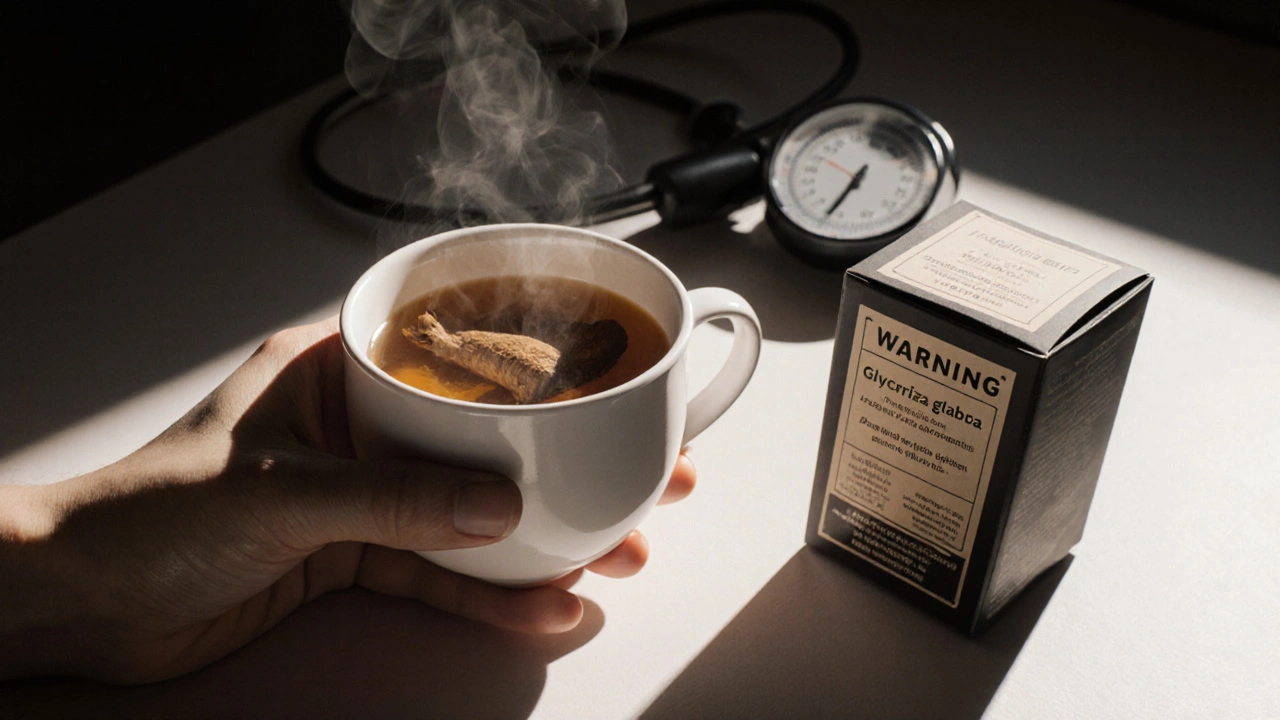Some herbs commonly used for energy, stress, or digestion can dangerously raise blood pressure. Learn which 7 herbs to avoid if you have hypertension - and what safer alternatives exist.
Read MoreHerbs That Raise Blood Pressure: What You Need to Know
When you reach for herbs that raise blood pressure, natural plant-based remedies that can increase systolic or diastolic readings. Also known as hypertensive herbs, they’re often taken for energy, digestion, or immunity—but can quietly worsen high blood pressure if you’re not careful. Many people assume ‘natural’ means ‘safe,’ but that’s not true when it comes to blood pressure. Some of the most popular herbal supplements in India—especially those used in Ayurveda—can act like hidden stimulants, pushing your numbers up without you realizing it.
Take Licorice root, a common ingredient in Ayurvedic blends for digestion and stress relief. It’s in dozens of teas and powders sold as ‘immune boosters.’ But licorice contains glycyrrhizin, which can cause sodium retention and potassium loss—two big drivers of high blood pressure. Studies show even small daily doses over weeks can raise readings in sensitive people. Then there’s Ephedra, a stimulant herb once used in weight-loss formulas and now banned in many countries. Though less common in India today, its cousins like Yohimbe, an extract from African tree bark used for energy and libido, still show up in supplements. Yohimbe can spike adrenaline, which tightens blood vessels and raises pressure fast.
Even St. John’s Wort, a herb often taken for mild depression, can interfere with blood pressure meds, making them less effective. And don’t forget Guarana, a South American plant with high caffeine content, sometimes added to Ayurvedic energy tonics. It’s not a traditional Indian herb, but it’s in many modern blends sold online. Caffeine is a known short-term blood pressure raiser—and if you’re on medication, it can undo your progress.
The real danger isn’t the herbs themselves—it’s the lack of awareness. Most people don’t tell their doctor they’re taking herbal supplements. They think, ‘It’s just a tea,’ or ‘My Ayurvedic practitioner said it’s fine.’ But if you’re on blood pressure meds, have heart disease, or are over 50, even a small herbal boost can be risky. A 2022 study in the Indian Journal of Pharmacology found that nearly 40% of patients with uncontrolled hypertension were using at least one herb that could interfere with their treatment—without knowing it.
You don’t have to give up herbal remedies entirely. But you need to know which ones to avoid, how much is too much, and when to skip them altogether. The posts below break down the most common herbs linked to high blood pressure, what the research actually says, and how to check labels so you don’t accidentally harm yourself. Whether you’re using Ayurvedic powders, herbal teas, or imported supplements, this is the practical guide you need before your next purchase.





